Top Ten Greatest Armies of World War II
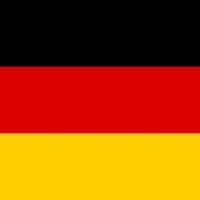
No matter in terms of equipment, personnel quality, command level, military thinking, and record, the German army is the leader. Even Germany's navy, which is weaker compared to the great powers, has made Britain and the United States miserable. As for the air force and army, they were invincible all over Europe.
Under symmetrical conditions, the German army remained undefeated in almost all battles. Under asymmetrical conditions, it was not easy to fight in the later stage, facing the two fronts of the East and West lines. It was famous all over the world on the North African battlefield, even though it was defeated. In North Africa, the Germans never really had an advantage and lost only one battle at Stalingrad.
The tactical thinking of its blitzkrieg is far ahead of other countries, and the low-altitude cooperation between its frontline troops is perfect. Even the later US and Soviet troops did not reach such a tacit level.
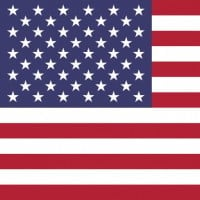
The United States, which has the strongest comprehensive national strength, ranks second in its military entirely because of its strong technology and support capabilities. The degree of standardization and support of the three armed forces are the best among the countries participating in the war. This has greatly made up for the lack of other aspects, such as the quality of US military personnel, making the US military the most powerful army after the war.
The US is on everyone's mind as number 1, but they are not, though they are in the top 3 or 5. Their elite forces like Rangers, Marines, Marine Raiders, and Airborne were some of the best in the world. However, other land forces that were normally trained were not as good, and their best officers were too cautious or too aggressive.
But the Air Force and Navy were the best, with top-of-the-line ships, planes, tactics, and crew. And their home front was rad. Altogether, they probably might be number 1, but I would say number 2 behind Germany.
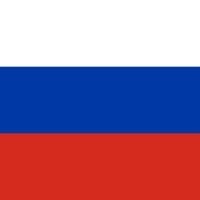
The reason for ranking the Soviet Army behind the U.S. Army is very simple: the Soviet Army had obvious disadvantages in the navy, and its naval tactical thinking was not very clever. In other respects, the quality of soldiers in the Soviet Army was also inferior to that of the U.S. Army, especially in terms of respect for European civilians and military discipline.
The USSR (not Russia!) was one of the best powers of WWII and after, but they still had their shortcomings. They would be in the top 5, but they relied heavily on tank and human waves to overcome enemy defenses. Their air force did not stand a chance until the German air force was basically depleted, thanks to the other allies.
They had plenty of good sides, though. Their officers were some of the best, comparable to German officers. Their factories were efficient too.
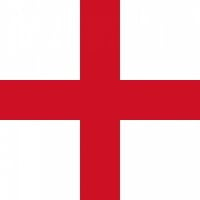
The record of the British army in Europe can only be described as makeshift. Although its equipment level is better than that of the Japanese and Soviet armies, it is slightly inferior to that of the US and German armies. Although its naval fighters are more outstanding, given its advantages over Germany and Italy, the gold content of this record is lower than the head-to-head confrontation between Japan and the US Navy. Moreover, its navy was at a disadvantage in the confrontation with the Japanese army in the Pacific. Combining its equipment level, fighting will, and record, only the Air Force's Battle of Britain can do it. Ranking 5 is not bad.
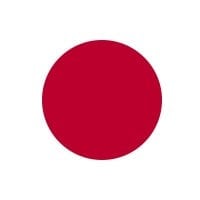
The strength of the Japanese army, navy, and air force is relatively balanced, but there is a clear gap with the United States and the Soviet Union. In addition to equipment factors, the old tactical thinking was fatal. This was also a common problem of Asian armies at the time, which made the Japanese army feel lagging behind when confronting European and American armies.
In 1939, Nomonhan, the most elite and domineering Kwantung Army, was smashed by Zhukov's Soviet tanks. In 1945, the Soviet army's iron flow swept across the Northeast. The Japanese could not compete. Even the well-performing navy still holds the outdated belief in large ships and cannons. Although there are generals like Yamamoto Isoroku who value naval aviation, in general, the Japanese navy is lackluster in the use of aircraft carriers and submarines.
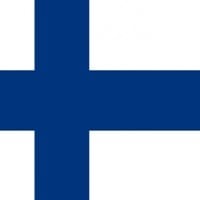 Finland, officially the Republic of Finland, is a Nordic country in Northern Europe. It shares land borders with Sweden to the northwest, Norway to the north, and Russia to the east, with the Gulf of Bothnia to the west and the Gulf of Finland across Estonia to the south. Finland covers an area of 338,455... read more
Finland, officially the Republic of Finland, is a Nordic country in Northern Europe. It shares land borders with Sweden to the northwest, Norway to the north, and Russia to the east, with the Gulf of Bothnia to the west and the Gulf of Finland across Estonia to the south. Finland covers an area of 338,455... read more In 1939, Russia invaded Finland to take land. The Finns were not happy about this. But one Finn, in particular, gave the Russians nightmares. Simo Häyhä, more commonly known as "The White Death," is known as one of the greatest snipers in the world. Häyhä has an estimated kill count of 505 Russians, more than horror movie villains like Michael Myers, Jason Voorhees, Chucky, and Freddy Krueger. He was armed with an iron-sight rifle because he saw that snipers with scopes were given away by the reflection of light on glass scopes. He is one of my favorite war heroes because Häyhä said he just did it because he wanted to protect Finland. Finland would lose the war, but Häyhä showed the Russians that you never underestimate a 5'3" man who's Finnish.
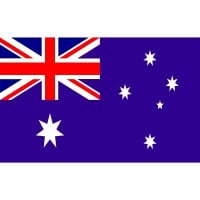
Aussies were some of the best fighting men on the Allies' side. They fought bravely against the Japanese, Italians, and Germans. Their factories were really good, producing an amazing tank armed with a 17-pounder gun. At the time, other tanks were considered good with 6-pounders. Their SMG was good too. Their air force fighters could compete when facing Zeros, at a time when the US was equipped with Wildcats.
Erwin Rommel himself, the Desert Fox, congratulated the efficiency of the Australian military. However, I will admit they lacked in numbers and so should probably be at least lower than Canada.
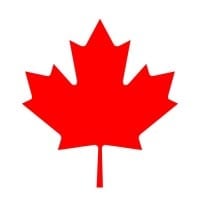
Canada was vital in the Battle of Britain, producing planes (Spitfires), and was instrumental in the success of D-Day, notably at Dieppe. They had the fourth-largest air force and, I think, the third- or fourth-largest navy. They also produced tanks.
Although they didn't really fight against Japan, they did send some soldiers to Burma. The only battle I know against Japan was the Hong Kong land battle. They did send ships to help the USA, so that counts.
Canada is an underrated country with good factories. They were able to make amazing Ram tanks, which were as multi-role as the Sherman, and they were amazing soldiers and pilots. Their navy crew members helped very much in transporting goods across the deadly Atlantic.
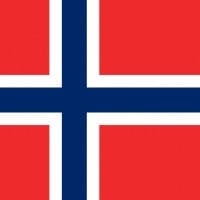 Norway, officially the Kingdom of Norway, is a sovereign and unitary monarchy in Northern Europe whose territory comprises the western portion of the Scandinavian Peninsula plus the island Jan Mayen and the archipelago of Svalbard... read more
Norway, officially the Kingdom of Norway, is a sovereign and unitary monarchy in Northern Europe whose territory comprises the western portion of the Scandinavian Peninsula plus the island Jan Mayen and the archipelago of Svalbard... read more Strictly speaking, these troops are counted in the ranks of the British army. Since they have no base areas of their own, they are completely dependent troops. This seriously affects their strength.
Norway was able to make an amazing stand and waged one of the best resistance movements of WWII.
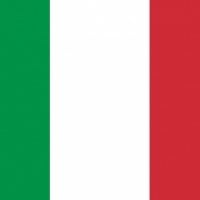 Italy (Italian: Repubblica Italiana) is a sovereign state and unitary parliamentary republic in south-central Europe.
Italy (Italian: Repubblica Italiana) is a sovereign state and unitary parliamentary republic in south-central Europe.Italy covers an area of 301,338 km². With almost 62 million inhabitants, it is the third most populous EU member state. Located in the heart of the Mediterranean Sea, Italy shares... read more
Apparently, Norway is stronger than Italy, which is ridiculous. Italy may have been the weakest of the 7 Great Powers of the time, but it was still powerful: it annihilated the Ethiopians and did somewhat OK in Africa. Probably the reason why everybody hates on Italy would be the war in Greece. There, however, they were facing Greek units with high morale and had to deal with hampering terrain with lots of mountains.
It also had the 5th-strongest navy in the world, which quickly became 4th once France fell. The UK obviously put a lot of effort into its navy, as did Japan. The US at the start of the war had some modern ships, but about half of its navy was from the early inter-war period and was outdated. France just existed, but its industry was good, and it built quite a few ships. Italy is a very close 5th, behind the US and France.
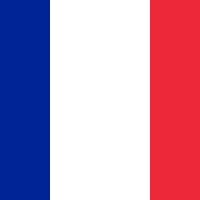 France, officially the French Republic, is a sovereign state comprising territory in western Europe and several overseas regions and territories. The European part of France, called metropolitan France, extends from the Mediterranean Sea to the English Channel and the North Sea, and from the Rhine to... read more
France, officially the French Republic, is a sovereign state comprising territory in western Europe and several overseas regions and territories. The European part of France, called metropolitan France, extends from the Mediterranean Sea to the English Channel and the North Sea, and from the Rhine to... read more France had a stronger military than Germany at the start of the war, with better tanks, better planes, a larger army (much of it in its colonies), and a far superior navy. However, its generals were incompetent, and the country's leaders and high command actually harmed the country more than helped. If France had not blundered away its capital and much of its land and surrendered, it may have won the war. France's faults were that it didn't utilize its armored divisions effectively, and of course, that it surrendered. Of course, there was an incident where Japan thrashed the French in their Vietnamese colony, but that was minor.
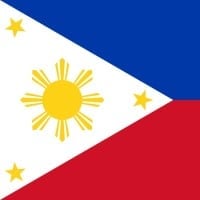 The Philippines, officially the Republic of the Philippines, is an archipelagic country in Southeast Asia. It is situated in the western Pacific Ocean and consists of around 7,641 islands that are broadly categorized under three main geographical divisions from north to south: Luzon, Visayas, and Mindanao... read more
The Philippines, officially the Republic of the Philippines, is an archipelagic country in Southeast Asia. It is situated in the western Pacific Ocean and consists of around 7,641 islands that are broadly categorized under three main geographical divisions from north to south: Luzon, Visayas, and Mindanao... read more Way underappreciated. They had probably one of the only resistance groups that had a major impact, along with the USSR and maybe Poland. (Sorry, maquis lovers, but the French resistance did not make much of an impact because a lot of the population was pro-German until 1943, with the introduction of forced labor there.)
Held a steady hand against the Japanese early on. The population got screwed almost as much as China did by the Japanese and eventually hit back hard against Tojo, just like how the Poles did against the Germans over the war (rebellions and guerrilla fighting like it was Vietnam).
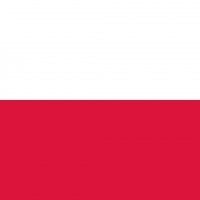 Poland, officially the Republic of Poland, is a country in Central Europe, bordered by Germany to the west; the Czech Republic and Slovakia to the south; Ukraine and Belarus to the east; and the Baltic Sea, Kaliningrad Oblast (a Russian exclave) and Lithuania to the north. With a population of approximately... read more
Poland, officially the Republic of Poland, is a country in Central Europe, bordered by Germany to the west; the Czech Republic and Slovakia to the south; Ukraine and Belarus to the east; and the Baltic Sea, Kaliningrad Oblast (a Russian exclave) and Lithuania to the north. With a population of approximately... read more Poland is the key to WWII. It started there, took almost 6 million lives of Polish citizens, and Polish troops fought everywhere it was possible with both Nazis and Soviets, at the same time.
Poles fought fiercely after the fall of their motherland. They fought within their territories, in the USSR, in the UK and France, decoded Enigma, and invented the mine detector.
Only one nation in Europe was fighting on both fronts, Western and Eastern, against the Third German Reich, plus Africa.
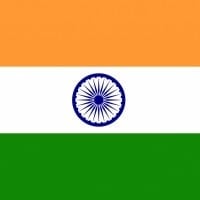 India, officially the Republic of India, is a country in South Asia. It is the seventh-largest country by area, the second-most populous country (with over 1.2 billion people), and the most populous democracy in the world. Its capital is New Delhi. Some other major cities are Mumbai, Chennai, and Ahemdabad... read more
India, officially the Republic of India, is a country in South Asia. It is the seventh-largest country by area, the second-most populous country (with over 1.2 billion people), and the most populous democracy in the world. Its capital is New Delhi. Some other major cities are Mumbai, Chennai, and Ahemdabad... read more India provided 2 million volunteer soldiers, although most or some were not well trained. Indian soldiers were not the worst or best soldiers the British Empire had. Singapore, although India made a huge effort on the Allied front, soldiers were not well trained due to Japan invading Burma, etc.
India, Indian soldiers helped the British in Asia, Egypt, the Middle East, so many places. I was considering putting India higher on the list.
It should be in the top 5 because 70% of the British army had Indian soldiers. Their sheer determination, skill, courage, and strength was all that the allies needed to win the Asian front.
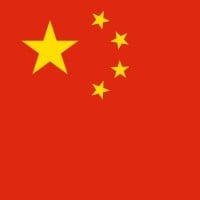 China, officially the People's Republic of China, is a country in East Asia. It is the world's most populous country, with a population of more than 1.4 billion. China spans five geographical time zones and borders 14 countries, the second most of any country in the world after Russia. Covering an area... read more
China, officially the People's Republic of China, is a country in East Asia. It is the world's most populous country, with a population of more than 1.4 billion. China spans five geographical time zones and borders 14 countries, the second most of any country in the world after Russia. Covering an area... read more The sixth place of the Chinese Communist Party is entirely due to the national army, which ranks 7th. It is mainly because the CCP could achieve such a record under such poor equipment conditions, which is impressive. Some statistical studies have concluded that the CCP's combat power is almost three times that of the national army. Assuming that the equipment of the Eighth Route Army reaches the level of the second-line troops of the Central Army, the CCP could achieve greater results than it is now. Assuming that the equipment of the Eighth Route Army had reached the level of the Japanese army, it could completely push Japan out of China on the frontal battlefield. Assuming that the equipment of the Eighth Route Army had reached the level of the German army… but it cannot be assumed that the Chinese Communist Army can only be ranked at this level due to the equipment level and the environment.
 A now-defunct country in Southeastern and Central Europe, Yugoslavia was established in 1918 and dissolved in 1992. Composed of several ethnic groups, the country faced significant political and social challenges, culminating in its breakup into several independent states. The capital was Belgrade,... read more
A now-defunct country in Southeastern and Central Europe, Yugoslavia was established in 1918 and dissolved in 1992. Composed of several ethnic groups, the country faced significant political and social challenges, culminating in its breakup into several independent states. The capital was Belgrade,... read more Yugoslavia, the Yugoslavians, fought bravely. When the Germans retreated, the Soviets and Yugoslavians obliterated the Italians and Germans together.
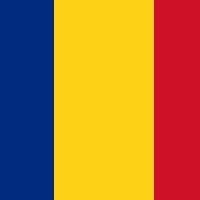 Romania is a sovereign state located in Southeastern Europe It borders the Black Sea, Bulgaria, Ukraine, Hungary, Serbia, and Moldova. It has an area of 238,391 square kilometres and a temperate-continental climate. With over 19 million inhabitants, the country is the seventh-most-populous member state... read more
Romania is a sovereign state located in Southeastern Europe It borders the Black Sea, Bulgaria, Ukraine, Hungary, Serbia, and Moldova. It has an area of 238,391 square kilometres and a temperate-continental climate. With over 19 million inhabitants, the country is the seventh-most-populous member state... read more The Romanian armies fought well and they had some of the best tanks, rifles, and SMGs of WWII. Also, they had the best generals and very skilled troops.
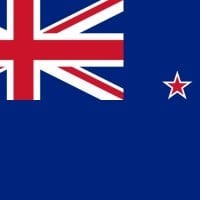 New Zealand is an island country in the southwestern Pacific Ocean.
New Zealand is an island country in the southwestern Pacific Ocean.It is situated 1,500 kilometres (900 mi) east of Australia across the Tasman Sea and roughly 1,000 kilometres (600 mi) south of the Pacific island areas of New Caledonia, Fiji, and Tonga. New Zealand's capital city is Wellington,... read more
Fought with Aussies and Commonwealth soldiers where the mother goes from the hearts of Africa to the fields of Europe, to the jungles of Burma and Malaysia. Of course, they didn't have good tanks, but they are good fighters for manpower and are the best island they fought in WWII. Probably number 3 because of Japan and the UK.
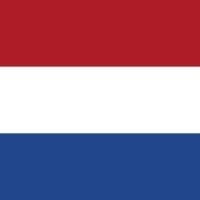 The Netherlands, informally Holland, is a country located in north-western Europe with overseas territories in the Caribbean. It is the largest of four constituent countries of the Kingdom of the Netherlands. The Netherlands consists of twelve provinces, and borders Germany to the east, Belgium to the... read more
The Netherlands, informally Holland, is a country located in north-western Europe with overseas territories in the Caribbean. It is the largest of four constituent countries of the Kingdom of the Netherlands. The Netherlands consists of twelve provinces, and borders Germany to the east, Belgium to the... read more
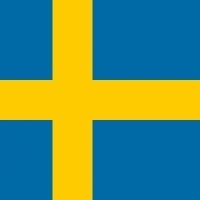 Sweden, officially the Kingdom of Sweden, is a Scandinavian country in Northern Europe.
Sweden, officially the Kingdom of Sweden, is a Scandinavian country in Northern Europe.It borders Norway to the west and Finland to the east, and is connected to Denmark in the southwest by a bridge-tunnel across the Öresund. At 450,295 square kilometers (173,860 sq mi), Sweden is the third-largest... read more
Very strong green-water navy and good army.
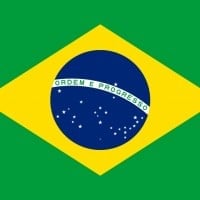 Brazil, officially the Federative Republic of Brazil, is the largest country in both South America and Latin America. At 8.5 million square kilometers (3,300,000 sq mi) and with over 214 million people, Brazil is the world's fifth-largest country by area and the sixth most populous. Its capital is Brasília,... read more
Brazil, officially the Federative Republic of Brazil, is the largest country in both South America and Latin America. At 8.5 million square kilometers (3,300,000 sq mi) and with over 214 million people, Brazil is the world's fifth-largest country by area and the sixth most populous. Its capital is Brasília,... read more Brazil was vital in fighting U-boats. They mostly escorted shipments like Canada, but they were also vital in protecting the Caribbean because most navies were being stretched. They also fought in Italy.
If they hadn't lost their entire system of fortifications when Germany annexed the Sudetenland and collapsed the First Czechoslovak Republic, the Czechoslovaks would have put up a good fight. They had a very modern army and the aforementioned fortifications.
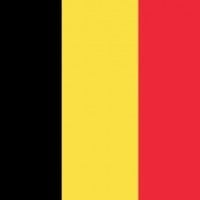 Belgium, officially the Kingdom of Belgium, is a country in Northwestern Europe. The country is bordered by the Netherlands to the north, Germany to the east, Luxembourg to the southeast, France to the southwest, and the North Sea to the northwest. It covers an area of 30,689 km2 (11,849 sq mi) and... read more
Belgium, officially the Kingdom of Belgium, is a country in Northwestern Europe. The country is bordered by the Netherlands to the north, Germany to the east, Luxembourg to the southeast, France to the southwest, and the North Sea to the northwest. It covers an area of 30,689 km2 (11,849 sq mi) and... read more The Belgian army held back a German army for 18 days, an army aimed and strong enough to capture the whole of Western Europe.
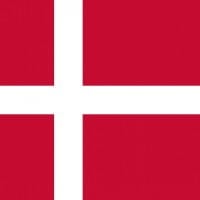 Denmark is a Nordic country in Northern Europe. It is the most populous and politically central constituent of the Kingdom of Denmark, a constitutionally unitary state that includes the autonomous territories of the Faroe Islands and Greenland in the North Atlantic Ocean. European Denmark is the southernmost... read more
Denmark is a Nordic country in Northern Europe. It is the most populous and politically central constituent of the Kingdom of Denmark, a constitutionally unitary state that includes the autonomous territories of the Faroe Islands and Greenland in the North Atlantic Ocean. European Denmark is the southernmost... read more